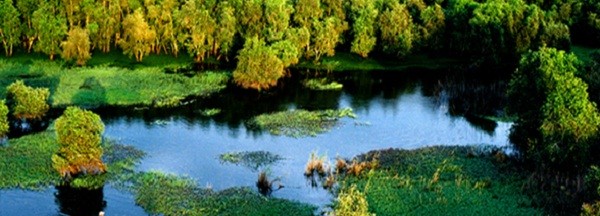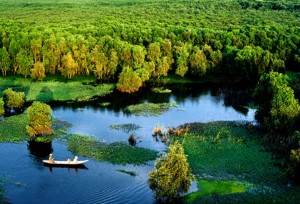Tram Chim National Park is known as the “Green Lung” of the Mekong Delta because of its vast expanse of wetlands and being home to many species of plants and animals. In order to preserve its natural state while promoting tourism and providing livelihood to the local residents, the provincial government of Dong Thap where it is situated will implement a sustainable eco-tourism development.
The Tourism Development Centre of the province will conduct a survey to determine the specific steps needed to create a balance between tourism development and ecosystem preservation. According to the agency’s director Le Hoang Long, the locals play a huge role in helping to maintain the natural resources of their land while earning from the thriving tourism in their area.
Among the plans outlined are creating local delicacies and building homestay services which will both generate income for the residents and lessen, or if possible totally eliminate, the exploitation of natural resources and hunting of wild animals at the park. In 2017, the World Wide Fund for Nature in Vietnam established such a project which centred on stimulating eco-tourism and sustainable use of natural resources in the park while enhancing the livelihood of the local people through community-based tourism.
Tram Chim National Park is located at Tam Nong District with a large area of 7,300 hectares. It houses 250 species of water birds, 100 species of freshwater fish and 190 species of plants. It is recognized as the fourth Ramsar Site of Vietnam and the 2000th Ramsar Site of Wetlands of International Importance in the world. It is also one of the most visited spots in Vietnam, increasing in tourist numbers through time. It is therefore imperative that the delicate balance between sustainable eco-tourism and community-based tourism development be preserved all throughout.

